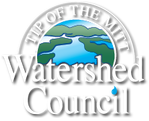More than 22 million pounds of plastic pollution end up in the Great Lakes every year. Carolyn Foley, Research Coordinator for Illinois-Indiana Sea Grant at Purdue University, will share information about microplastics in the Great Lakes. She has been involved in a collaborative effort to study impacts of plastic litter distribution through the Great Lakes watershed, the integration of plastics into Great Lakes food webs, and innovations to prevent plastic litter from entering freshwater systems.
She manages competitive research programs, communicates research outcomes, co-hosts the Teach Me About the Great Lakes podcast, and conducts original research. She has collaborated with Great Lakes scientists from USGS, US EPA, NOAA, the Illinois Natural History Survey, both Illinois and Indiana DNR Lake Michigan Coastal Programs, consulting companies, and many other academic institutions.
Carolyn received a BSc in biology from the University of Windsor, Ontario, Canada, and an MS in entomology from Purdue University, Indiana, USA. She maintains an active research program with the Purdue University Department of Forestry and Natural Resources Fish Ecology Lab (Tomas Hook, PI), with more than 20 peer-reviewed publications in journals such as Science of the Total Environment, Climatic Change, Ecological Indicators, and the Canadian Journal of Fisheries and Aquatic Sciences.
Links mentioned in this presentation:
Microplastics may increase the risk of PFAS entering the Lake Michigan food web
Great Lakes Fish Contain Record Levels of Microplastics
Muskegon Lake Microplastics Study
Microplastic pollution more complex than we think, says new research
A meta-analysis of the effects of exposure to microplastics on fish and aquatic invertebrates
University of Michigan “The Plastic Bag Store”
To watch the recording, go to https://watershedcouncil.org/resources/reference-library/ice-breakers/


